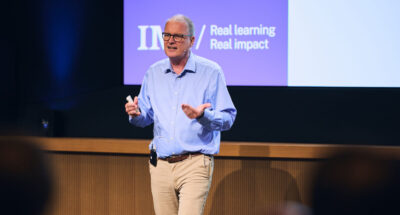An AI-enabled vision for the future
To achieve this vision, a multipronged strategy is necessary, with both governments and business fully on board and working in harmony. Policymakers must prioritise digital education and infrastructure, while companies should invest in training and development. Moreover, international collaboration will be key to sharing knowledge and resources. Education systems must adapt to prepare students not just for the jobs of today but for those of tomorrow.
For international businesses, in particular, the burgeoning AI talent pool in South Africa and the Global South represents a frontier of opportunity. Investing in local talent development not only contributes to societal good but opens up new markets and innovation possibilities. The success of such investments, however, depends on a stable and supportive policy environment and a commitment to long-term development.
The landscape of international business opportunities in South Africa, particularly in Cape Town and the Western Cape, is witnessing a significant transformation, driven by strategic investments from global technology giants. Notably, Amazon has embarked on a ground-breaking investment, with plans to spend up to R30 billion ($1.6bn) on establishing its African headquarters in Cape Town. This move not only highlights the region’s potential as a key player in the tech industry but also sets a precedent for future investments in the continent’s digital infrastructure and workforce development.
Similarly, Microsoft has reinforced its commitment to South Africa’s digital economy through the establishment of multiple hyperscale data center locations across the country. These facilities are pivotal in providing Azure, Microsoft 365, Co-pilot and other leading online services, supporting local and regional organizations as they navigate the rapid pace of digital transformation. This investment is a testament to the growing demand for cloud services in Africa and Microsoft’s confidence in the region’s potential to lead in the digital age.
Beyond these notable investments, the region has attracted attention from other international companies looking to tap into the burgeoning tech ecosystem. For example, companies like Cisco and IBM have also made significant contributions, with investments aimed at enhancing cybersecurity, cloud computing, and AI capabilities in South Africa. These investments not only bring cutting-edge technology and expertise to the local market but also foster job creation, skills development, and economic growth.
The confluence of these investments sends a clear call sign for international businesses. Cape Town and the Western Cape are rapidly emerging as a strategic hub for technology and innovation in Africa, offering a fertile ground for companies looking to invest in the digital future. The region’s growing tech ecosystem, supported by world-class infrastructure and a skilled workforce in beautiful surroundings, presents a unique, attractive proposition for businesses aiming to expand their footprint in the global digital economy.
This influx of investment and interest is already positioning the country at the forefront of the global conversation on digital transformation and innovation. It reinforces the notion that the region is not just a participant in the digital age but a driving force behind its evolution.
For international businesses, the message is clear: the time to invest in South Africa’s digital economy is now. As these initial investments continue to bear fruit, they will undoubtedly pave the way for more companies to explore the vast opportunities within South Africa and the broader African continent.







